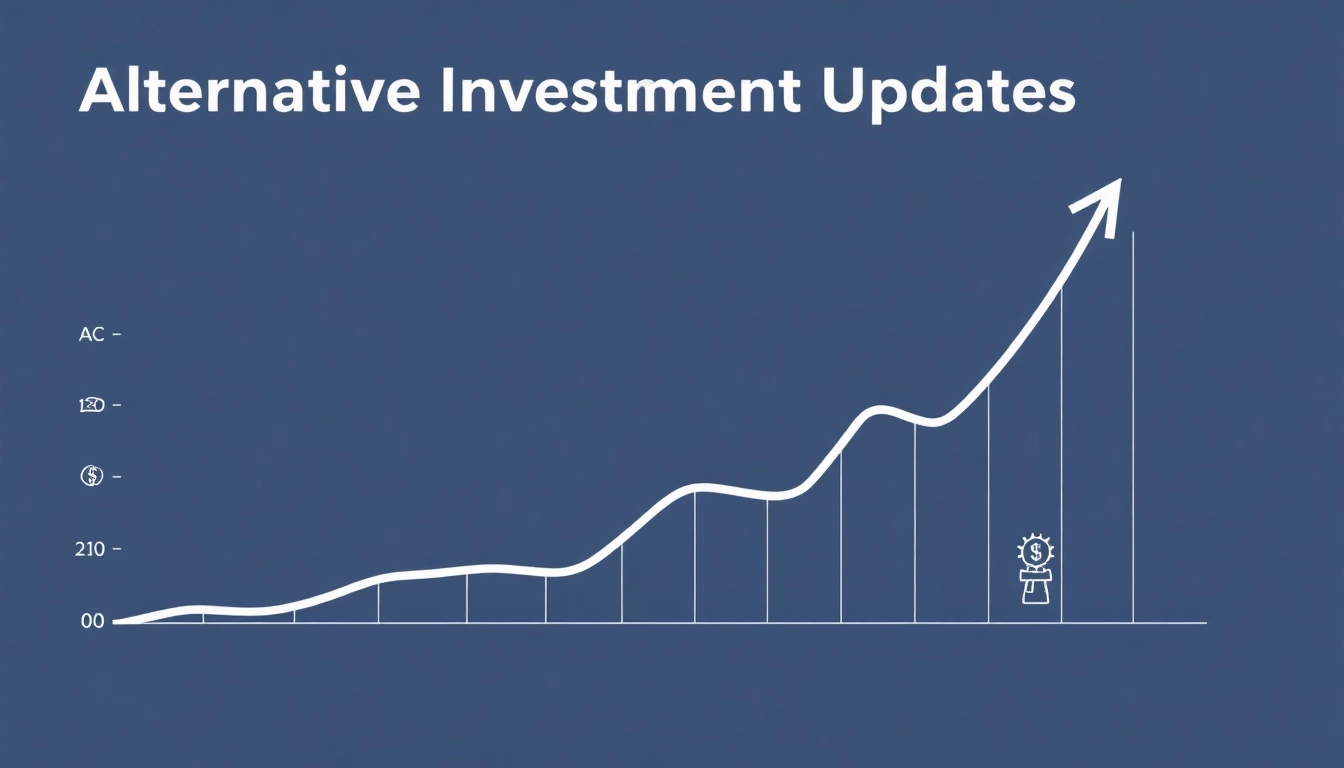Understanding the Fundamentals of Alternative Investments Updates
In today’s dynamic financial landscape, investors are increasingly turning toward alternative investments to diversify their portfolios and enhance returns. These investments, which include assets outside traditional stocks and bonds, play a critical role in providing diversification, hedging against inflation, and accessing uncorrelated returns. Staying informed on the latest Alternative Investments Updates is essential for making strategic decisions and capitalizing on emerging opportunities. In this comprehensive guide, we explore the core concepts of alternative investments, current developments, and practical strategies for integrating these insights into your investment approach.
Defining Alternative Investments and Their Role in Portfolios
Alternative investments encompass a broad range of asset classes beyond conventional equities and fixed income. These include private equity, hedge funds, real estate, commodities, infrastructure, venture capital, and more recently, digital assets such as cryptocurrencies. Their primary appeal lies in their low correlation with traditional asset classes, providing diversification benefits and potential for outsized returns.
Incorporating alternative investments into a portfolio can mitigate risk during market downturns and introduce exposure to niche markets with high growth potential. For example, private equity investments may require long-term commitments but often deliver superior returns compared to public equities. Similarly, commodities like gold and oil serve as inflation hedges, especially during economic uncertainties.
Why Keeping Up with Alternative Investments Updates Matters
The landscape of alternative investments is in constant flux due to technological advancements, regulatory shifts, and evolving market dynamics. Staying updated allows investors to identify new asset classes, understand changing risk profiles, and adapt their strategies accordingly. Regularly monitoring industry trends can also reveal emerging opportunities that may offer competitive advantages.
For instance, recent developments in digital assets and decentralized finance (DeFi) have opened avenues for innovative investment products. Ignoring these updates could result in missed opportunities or exposure to unforeseen risks. Furthermore, regulatory changes heavily impact the viability and regulation of alternative investments, making timely information vital for compliance and strategic planning.
For more insights, visit Alternative Investments Updates to remain ahead of market trends and data-driven insights.
Common Challenges in Tracking Alternative Investment Trends
Keeping pace with the fast-evolving world of alternative investments is not without obstacles. Some of the most prevalent challenges include:
- Information Overload: The sheer volume of data sources and reports can be overwhelming, making it difficult to filter relevant insights.
- Transparency Issues: Many alternative assets, especially private equity and hedge funds, lack transparency, complicating due diligence.
- Regulatory Uncertainty: Rapid regulatory changes may render certain strategies obsolete or expose investors to compliance risks.
- Access Barriers: Limited availability to high-quality deals or investments requiring substantial capital can restrict smaller investors.
Overcoming these challenges requires leveraging advanced research tools, engaging with industry experts, and adopting disciplined due diligence processes to ensure data reliability and relevance.
Latest Developments in Alternative Investments Updates
Emerging Asset Classes and Opportunities
Innovation continues to reshape the alternative investment landscape. Recent trends include the rise of climate-related assets like green bonds and renewable energy projects, reflecting the growing emphasis on sustainable investing. Digital assets such as cryptocurrencies and decentralized finance (DeFi) platforms are gaining mainstream traction, offering new investment horizons with high growth potential but also heightened volatility.
Market Drivers and Regulatory Changes Impacting Alternatives
Economic factors such as low interest rates and inflationary pressures drive investors toward alternatives that can deliver higher returns or hedge against economic downturns. Meanwhile, governments and regulators worldwide are refining frameworks for digital assets, ESG disclosures, and private market transparency, influencing investment strategies and compliance requirements.
Impact of Economic Conditions on Alternative Investment Performance
Economic conditions directly influence asset performance. For example, rising inflation tends to boost commodities prices, benefiting resource-based assets. Conversely, economic downturns may impair private equity exits or diminish liquidity in certain markets. Strategic allocation considering macroeconomic forecasts helps optimize risk-adjusted returns in these environments.
Strategies for Integrating Alternative Investments Updates into Your Portfolio
Analyzing Risk and Return with the Latest Data
Effective integration starts with rigorous data analysis. Evaluate historical performance, volatility measures, and correlation metrics of promising assets. Use scenario analysis and stress testing to understand potential outcomes under various market conditions. Access to real-time data enables timely rebalancing and risk management adjustments.
Asset Allocation Tips Based on Current Trends
Align your allocation with prevailing market trends. For instance, in an environment favoring technological innovation, increasing exposure to digital assets or venture capital may be prudent. Conversely, during economic uncertainties, allocating more to hedging assets like precious metals or insurance-linked strategies can protect capital. Diversification across multiple alternative asset classes can also enhance resilience.
Case Studies: Successful Adoption of Alternative Investment Insights
Consider hedge funds that pivoted to ESG-compliant strategies or private equity funds that capitalized on digital transformation trends. These examples demonstrate the importance of staying informed; those who successfully integrated recent updates into their investment processes achieved superior performance and mitigated risks.
Tools and Resources for Staying Informed on Alternative Investments Updates
Top Research Platforms and Data Sources
Reliable research platforms such as Preqin, PitchBook, and Bloomberg offer comprehensive data on private markets, hedge funds, and digital assets. These sources provide real-time analytics, fund performance metrics, and industry reports essential for informed decision-making.
Expert Analysis and Industry Reports
Engaging with industry thought leaders through webinars, conferences, and proprietary reports reveals deeper insights into emerging trends. Professional advisory firms often publish specialized papers that dissect recent market shifts, regulatory changes, and technological innovations.
Leveraging Technology for Real-Time Updates
Utilize AI-driven news aggregators, subscription-based alert systems, and portfolio monitoring tools that provide instant updates on relevant market developments. These technologies help investors react swiftly to market-moving events and refine strategies accordingly.
Future Outlook and Innovation in Alternative Investments Updates
Predicted Trends for the Next 5 Years
Looking ahead, the integration of artificial intelligence, blockchain technology, and big data analytics will deepen transparency and efficiency within alternative markets. ESG-focused assets are expected to dominate growth, driven by regulatory mandates and investor demand. Digital assets will likely undergo further maturation, with increased institutional participation and improved regulatory clarity.
Technological Advances Shaping Future Investment Strategies
Machine learning algorithms will enhance predictive analytics, allowing for more accurate risk assessments and opportunity identification. Tokenization of assets will facilitate fractional ownership, broadening access to illiquid markets. These innovations will democratize investing and foster more agile portfolio management.
Preparing for Upcoming Market Shifts in Alternative Investments
Proactive investors should develop playbooks that incorporate scenario planning for market disruptions, regulatory changes, and technological disruptions. Building flexible portfolios and cultivating knowledge in emerging asset classes will be crucial for capitalizing on future shifts.



